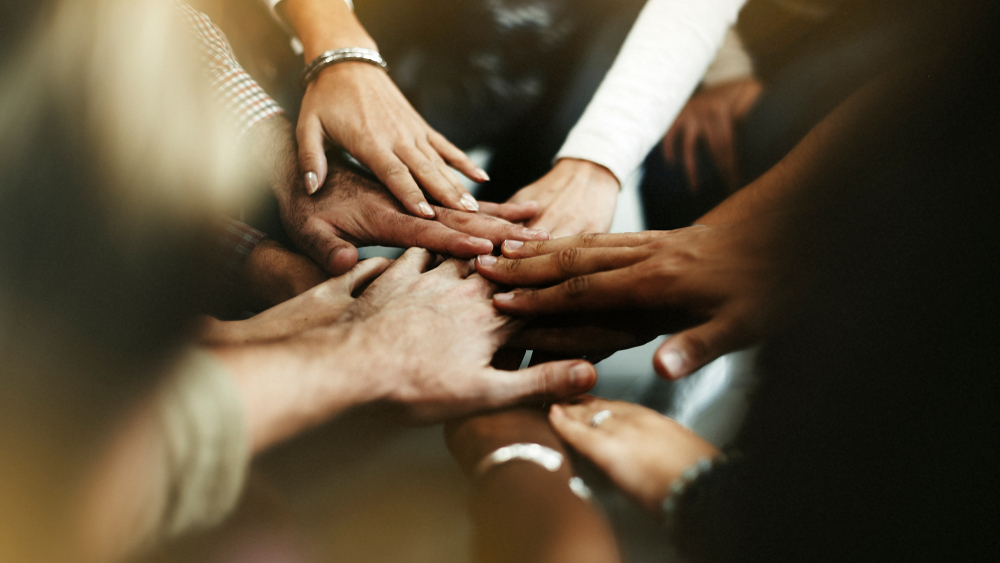What if the answer to racial tensions in America lay in the removal of race as a necessary identifier of any human person? This question frames a new theory put forward by Sheena Mason, assistant professor of African American literature at SUNY Oneonta, in Oneonta, N.Y. According to Mason’s website, “The camouflaging of racism as race remains, in large part, why many people and institutions have failed to partially, entirely, or meaningfully address racism even when actively participating in anti-racist efforts.” Her solution is a raceless discussion about human flourishing.
For Mason, “race involves the belief that human beings are naturally born, for better or worse, into separate and distinct categories.” Over the course of human history, race has been used to create social and political hierarchies that then became the basis for tyranny and oppression. In America, this created a race hierarchy that came to justify the institutionalization of slavery, Jim Crow, and the eugenics movement. Because of this history, the definition of racism tends to focus on how white people regard nonwhite people and obscures the fact that racism can be a vice for anyone at any time in any community anywhere. It leaves us with the question, “Can nonwhite people be racist?”
Judeo-Christian anthropology exposes the absurdity of the question by recognizing the fact that all human persons are morally flawed and have the potential for great evil, but also the capacity for outstanding virtue. Race does not predetermine whose lives will be characterized by vice or virtue. This reality calls for a new paradigm, a new way of thinking. Perhaps it’s time to decentralize race as a descriptive term for how we explore relationships between human persons. Perhaps our problem is that we’re in cultural captivity to our conceptions of race. It’s not enough to say that race is a social construction. What if we agreed that race does not exist at all, at least our modern conception of it. Mason’s solution is what she calls her “Theory of Racelessness.” The best way to face racism is to liberate ourselves from racializing human relationships in the first place and de-racializing our discussions about justice and human flourishing. Mason argues that this
Theory of Racelessness … constitutes a true antirace(ism) by seeking to undo not only racism but also “race.” It holds that “race” does not exist except insofar as it is imagined to exist, and that, therefore, the sooner we stop imagining it in our language and discourse, the sooner it will vanish. In eliminating “race,” the Theory of Racelessness helps people recognize and imagine themselves outside of race(ism). It enables people to see themselves and others more clearly, without the distorting filter of “race.” In this way, the theory also helps people become more astute at recognizing and solving race(ism). Importantly, the theory’s core is bringing our shared humanity to the forefront in ways that the divisive presence or insertion of “race” ideology precludes. Together, we can do anything, including uphold race(ism). But we can also reconcile, heal, resolve, and eliminate the problem, too.
The details of this theory are outlined in her upcoming book, and I’m looking forward to reading it. This is a refreshingly radical proposal given our contemporary discussions about race in America. If we remove race as an explanatory tool, where does that leave us? In the personalist tradition, it leaves us with the human person. First and foremost, Mason would like for us to speak about each other on the basis of the beauty of our shared humanity rather than the expressions of phenotypes in our genes. This is where anti-racism goes wrong. It depends on the continuation of racism for anti-racism to survive. Otherwise, it has no purpose. If there’s no racism, there’s no need for anti-racism. In other words, as Mason argues, our current anti-racist efforts reifies race when, in fact, race does not exist.
University of Notre Dame sociologist Christian Smith makes the case that we will not come to helpful conclusions about equality, fairness, thriving, human flourishing, and the like until we understand and explain human persons, motivations, interests, and the social life to which they give rise. That is, regarding human persons, we need to be asking:
(1) What basic motivations and interests generate and direct human action?
(2) What is by nature good for human beings—that is, what are real human goods?
(3) How should we understand and explain the lack of goodness—sometimes even literal destructiveness and evil—that is prevalent and damaging to human life?
The answers cannot be racialized. The most productive discussions about the nature of injustice transcend modern conceptions of race, and when they fail to focus on the human person these discussions usually devolve into useless grievances about power. However, if we center our discussion of injustice and human flourishing on Smith’s definition of what it means to be a person, we will make substantive progress in finding just solutions to enduring human problems.
By person I mean a conscious, self-transcending center of subjective experience, durable identity, moral commitment, and social communication who—as the efficient cause of his or her own responsible actions and interactions—exercises complex capacities for agency and intersubjectivity in order to develop and sustain his or her own incommunicable self in loving relationships with other personal selves and with the nonpersonal world.
The implication here is that perhaps what will bring the most effective policies and insights for social change is to have a person-centered discussion about human flourishing rather than a race-centered discussion. Racelessness can usher in an end to the self-limitations and rhetorical traps that dominate our race-reasoning discussions today. Until then, race all too often blinds us to the best political and economic solutions that could enable us all to prosper.
